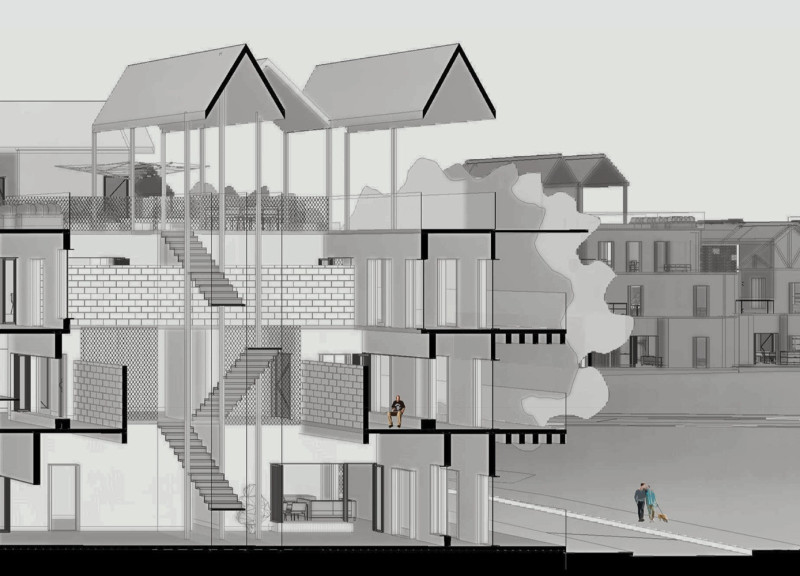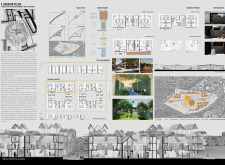5 key facts about this project
The proposal for "A Suburban Village" addresses the housing affordability crisis in Melbourne. It is located in the middle outer suburbs, aiming to change the way people live in these areas. The project seeks to move away from the traditional model of large houses on big blocks. Instead, it focuses on community and sustainable development. The design encourages social interaction and aims to create a more interconnected environment.
Village Center and Communal Spaces
At the heart of the design is a village center that serves as a gathering place for residents. This central area provides access to essential shops and services, encouraging daily interaction among community members. It is planned to be within walking distance of public transport options, making it easy for residents to travel to work or other destinations. The goal is to create a self-sufficient community where everything needed is nearby.
Shared Yards and Residential Typologies
The layout differs from traditional suburban streets by introducing shared yards. This design choice is aimed at fostering a sense of community. Neighbors are encouraged to meet and interact in these communal spaces. The homes will feature courtyards instead of backyards, promoting outdoor activities and social gatherings. Front yards are replaced with thresholds and balconies, which enhance the connection between homes and the street, balancing private living with public engagement.
Sustainable Water Management
A notable feature of the design is the use of existing water tanks on the site. These structures will be kept and integrated into the overall development. Their presence supports practical water management while adding character to the landscape. A water feature will be included in the village, enhancing the communal atmosphere. This aspect not only serves an aesthetic purpose but also encourages attention to ecological sustainability.
The design envisions a new way of living in suburban areas, focusing on accessibility and livability. It aims to create a community where residents can interact, share resources, and enjoy their environment together. The careful planning and thoughtful layout will foster a sense of belonging and connection among all who live there.




















































